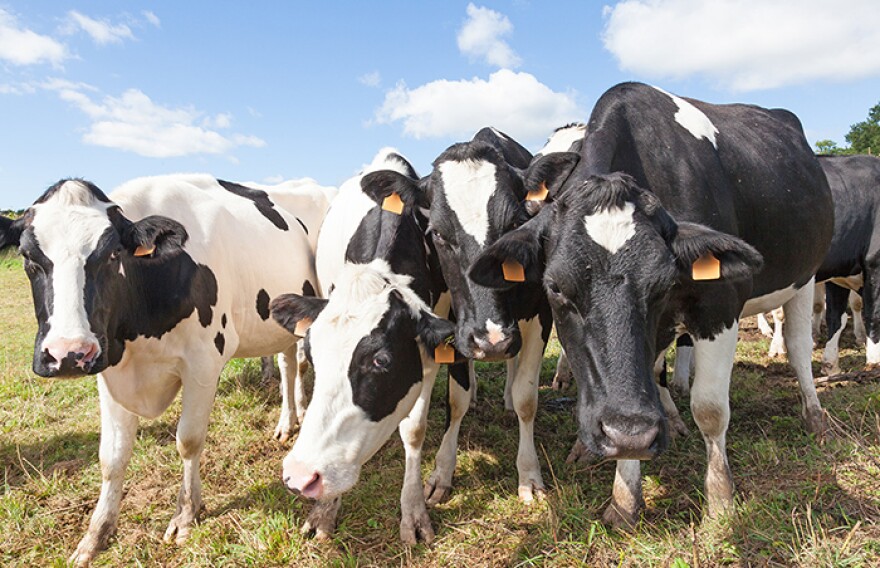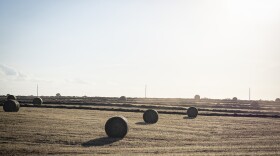A couple of Oklahoma’s border states have dairy herds with avian influenza but none have been detected in the Sooner State yet.
Federal agencies including the U.S. Department of Agriculture have found positive cases of highly pathogenic avian influenza (HPAI) in dairy herds in Kansas, Texas and Michigan. Presumptive positive test results have been received for herds from New Mexico, Idaho and Texas, according to the latest release from the department.
The avian flu has been discovered in other species, like sea lions, but this is the first time it has been seen in cattle. Earlier in the month, a Minnesota goat also tested positive for the virus. Experts stress products remain safe to eat, risk to the public is still low and the milk supply is not expected to be impacted.
Initial tests have not found changes in the virus that make it transmissible to people, according to the USDA.
“While cases among humans in direct contact with infected animals are possible, this indicates that the current risk to the public remains low,” according to the USDA release.
The illness is often fatal and highly contagious for domestic poultry like chickens. In cattle, it’s causing symptoms like low appetite and decreased milk production in older dairy cows. The sick animals have recovered after isolation with little to no associated deaths reported, according to the USDA.
Oklahoma State Veterinarian Rod Hall said currently, there has not been a dairy cow death directly attributable to the bird flu reported. He said in the dairy herds where the illness is present, about 10% of the animals were infected.
“The course normally runs about two weeks from the time cows start getting sick and until they're pretty much over it,” Hall said. “Most of them come back and regain the amount of milk that they were producing. And so, in an individual dairy, it's not a huge issue.
And I suspect that if we get it in Oklahoma, that's probably what our dairy folks are going to see.”
Both Hall and Rossyln Biggs, the director of continuing education at Oklahoma State University’s College of Veterinary Medicine and OSU beef cattle extension specialist, said milk, dairy or meat from cattle and goats remain safe to consume.
“Pasteurization and proper cooking continue to eliminate viral and bacterial agents in our milk and meat, including influenza,” Biggs said in an email. “The dairy industry is not anticipating a major impact on the milk supply and there should be no impact on the price of milk or other dairy products.”
In addition to pasteurization, milk sent in for human consumption is required to be from a healthy cow and milk from the dairies impacted is being destroyed or diverted from human supply, according to the USDA.
Hall said state dairy farmers have not contacted the Oklahoma Department of Agriculture asking questions about the flu or reporting the illness. He said the department sent a letter notifying diaries of the bird flu, providing biosecurity information and asking them to contact the agency if they see any problems.
In the email, Biggs said because wild birds seem to be the root of the Texas cases, there is a more limited risk to Oklahoma herds.
USDA officials said the strain of virus found in Michigan is “very similar” to the strains in Texas and Kansas which appears to be spread through the wild birds.
“Spread of symptoms among the Michigan herd also indicates that HPAI transmission between cattle cannot be ruled out; USDA and partners continue to monitor this closely and have advised veterinarians and producers to practice good biosecurity, test animals before necessary movements, minimize animal movements, and isolate sick cattle from the herd,” according to the USDA release.
Biggs and Hall said officials are closely monitoring the situation in other states.
Biggs said the extension recommends Oklahoma dairy operations to continue using everyday practical biosecurity measures. Federal and state agencies are also recommending dairies to use biosecurity measures.
Get the latest Oklahoma news in your inbox every weekday morning. * indicates required
Copyright 2024 KOSU. To see more, visit KOSU. 9(MDA4OTAxNzAzMDEzMjc0MTc2MzA5ZDZlMw004))







